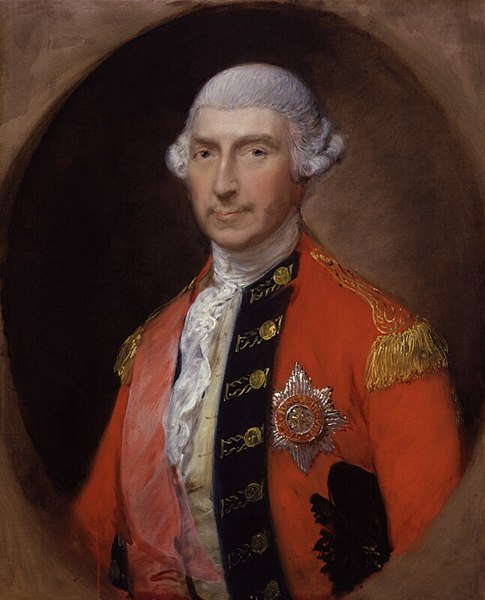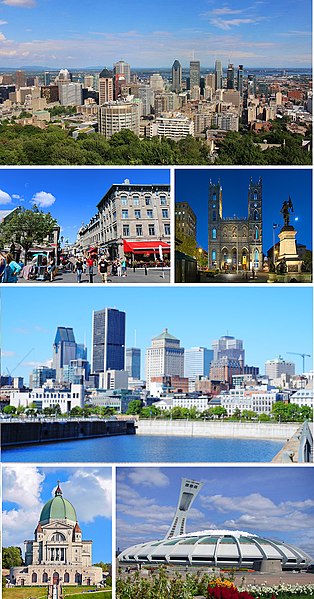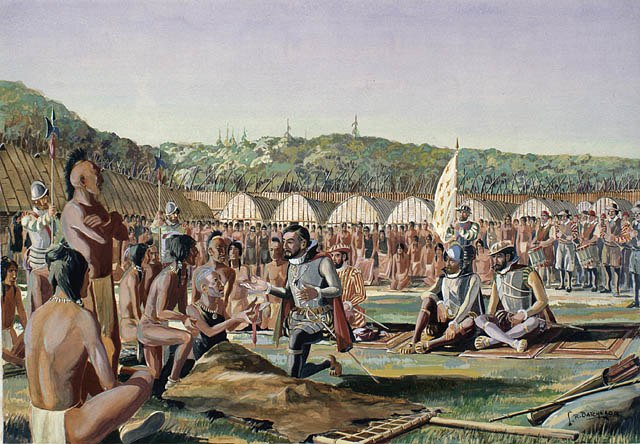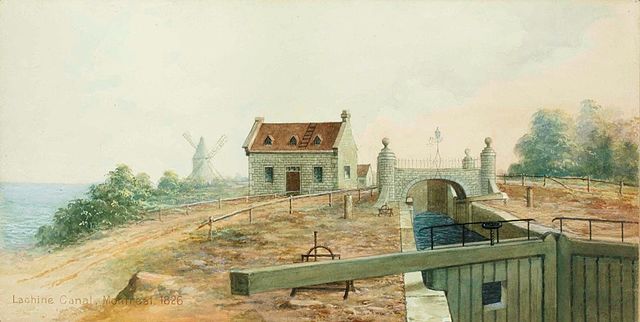The Montreal campaign, also known as the fall of Montreal, was a British three-pronged offensive against Montreal which took place from July 2 to 8 September 1760 during the French and Indian War as part of the global Seven Years' War. The campaign, pitted against an outnumbered and outsupplied French army, led to the capitulation and occupation of Montreal, the largest remaining city in French Canada.
Surrender of the French Army in Montreal in 1760
Jeffery Amherst commander of the British forces
François Gaston de Lévis - military commander of New France
James Murray - his advance was a successful pacifying campaign that won over the French Canadians
Montreal is the largest city in the province of Quebec, the second-largest in Canada, and the tenth-largest in North America. Founded in 1642 as Ville-Marie, or "City of Mary", it is now named after Mount Royal, the triple-peaked hill around which the early settlement was built. The city is centred on the Island of Montreal and a few much smaller peripheral islands, the largest of which is Île Bizard. The city is 196 km (122 mi) east of the national capital, Ottawa, and 258 km (160 mi) southwest of the provincial capital, Quebec City.
Montreal
Jacques Cartier at Hochelaga. Arriving in 1535, Cartier was the first European to visit the area.
French authorities surrender the city of Montreal to the British after the Articles of Capitulation was signed in 1760.
View of Lachine Canal in 1826, a year after it opened. It bypassed the rapids west of the city, linking Montreal with other continental markets.







